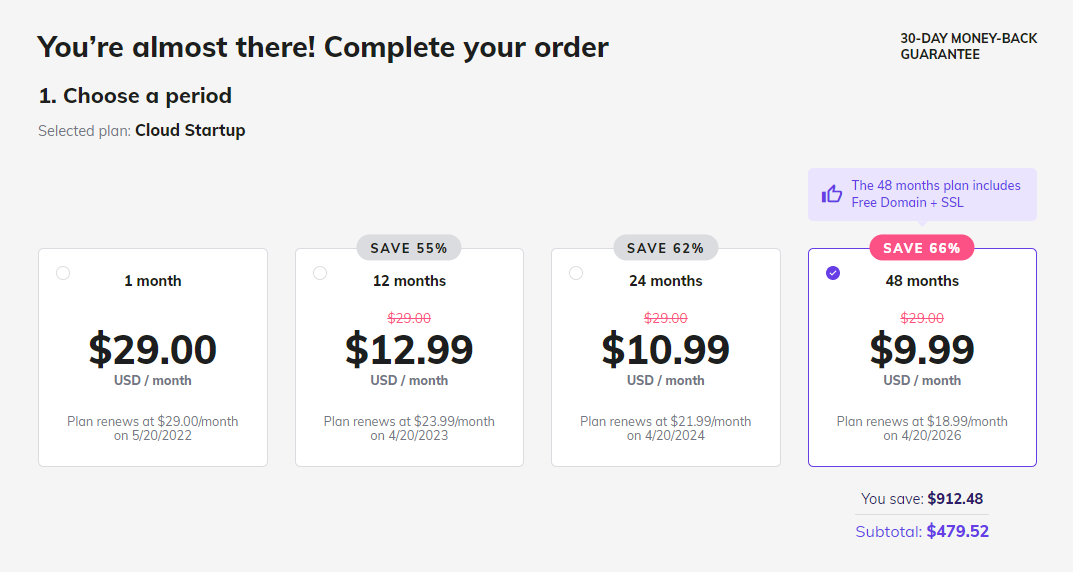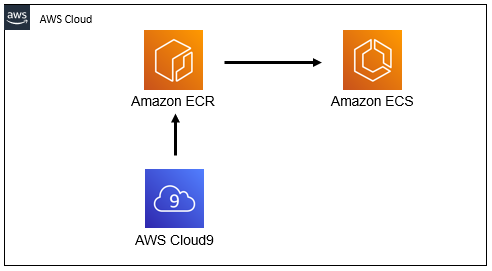
A host is a computer which provides services to other machines on a network. The host is typically a mainframe computer that connects with other workstations in order to provide services to the network's programs. It is also known by the Internet as a large-server. In both cases the host is a powerful computer or program that provides services and data to other computers or devices on the network.
Hosts may be any computer or device that communicates with other hosts within a network.
A host, also known as a service provider, is a computer which connects to a network to provide services to other devices. It may be responsible for sending and receiving data, as well applications. In network architecture hosts can either be physical or virtual devices. Other devices that may be part of a network include routers and switch.
A network is a collection of devices that communicate with each other using an IP address. Each device has a unique IP address. This allows hostnames (or hostnames) to be translated to IP addresses. It makes it easy to find other devices and networks and to communicate with them. A network can consist of a variety of devices, including hubs, switches, routers, WiFi boosters, and more.

Servers provide services to programs connected to the network
Servers are computer programs and systems that provide services to computers connected to a network. A server operating system is what they typically use. This OS manages the computers' resources and handles all the server-related tasks. These systems have more features and processing power than regular computers, which are used for other purposes.
Servers transmit information to other computers such as websites or files. They are essential components of any information technology infrastructure. There are many types available. Each one is different in terms of size, shape, capability, and capacity.
Distributed hosting refers to a form distribution hosting
Distributed hosting, a form web hosting in which many users share one server, instead of each individual server. Web hosts store their servers in data centres, while subscribers do not have to maintain their own server. Instead, users type their URL into a web browser. The browser converts it into a IP address and sends the information to the server. The web host is the owner of the servers, and they rent them out to users who want to access their websites.
InterPlanetary File System (IPFS), offers new distributed web hosting. This network-based protocol allows users to share content in a distributed system, such as a shared database. The IPFS protocol utilizes content-addressing to uniquely identify each file in a global namespace.

Cloud hosting is an emerging type of hosting
Cloud hosting is a type or hosting service where you can pay as little or as many as you'd like. This type is best for websites that receive high traffic and need flexible pricing options. It is a safer way to store data than on a traditional server, and it allows for advanced monitoring and web application firewalls. It's also more flexible than traditional webhosting in terms of its pricing.
Cloud hosting works by disaggregating a physical machine into many virtual machines. These virtual servers are then connected to form one network for hosting your site. It's also known as cluster hosting. It is generally more expensive than shared hosting but provides many benefits. Cloud hosting is more cost-effective than shared hosting, but it offers many benefits. For instance, sudden traffic spikes can be predicted easily and virtual servers are continuously loaded with traffic, without overloading physical servers. Some websites require more security than others. Cloud Hosting allows you to adapt your web hosting plan to suit your needs.
FAQ
WordPress is a CMS.
Yes. It is called a Content Management System. CMS allows you to manage the content of your website from within a web browser, instead of using applications like Dreamweaver and Frontpage.
WordPress is absolutely free! Hosting is all you need, and it's usually free.
WordPress was initially intended to be used as a blog platform. Now, WordPress offers many different options: eCommerce sites, forums. Membership websites. Portfolios.
WordPress is easy to install and set up. Download the file from their website, and then upload it to your server. Then, you simply visit your domain name through your web browser and log in to your new site.
After installing WordPress, you'll need to register for a username and password. After logging in, you will see a dashboard that allows you to access all your settings.
From here, you can add pages, posts, images, links, menus, widgets, and plugins. If editing and creating new content is easier for you, skip this step.
But if you'd rather work with someone, you can hire a professional website designer to handle everything.
What is the cost of building a website?
The answer to that question depends on the purpose of your website. Google Sites may not be required if you simply want to provide information about yourself or your company.
You will likely need to spend more if you want to attract people to your site.
A Content Management System (like WordPress), is the most popular option. These programs can be used to build a website quickly and easily without having to know any programming. This is because the sites are hosted and maintained by third-party companies. You don't have any risk of being hacked.
Another way to build a website is to use a service called Squarespace. There are a number of plans available, with prices ranging from $5 per Month to $100 Per Month depending on the features you wish to add to your website.
Do I use WordPress?
The best way to build an effective web presence is to start small. If you have all the resources and time, then build a website. A simple blog is a good option if you don’t yet have the necessary resources. You can always add features later as you learn how to design and develop websites.
You should first set up your primary domain before you begin building your first website. This will give you a pointer to which to publish content.
What HTML and CSS are available to help me build my website?
Yes! Yes!
You now know how to build a website structure. Now you need to learn HTML and CSS coding.
HTML stands for HyperText Markup Language. It's like creating a recipe for a dish. You would list ingredients, directions, etc. HTML can also be used to inform a computer if certain parts of text should appear bold, underlined and italicized. It is the language used to describe documents.
CSS stands for Cascading Style sheets. Think of it like a style sheet for recipes. Instead of listing each ingredient and instructing, you can write down general guidelines for font sizes, colors and spacing.
HTML tells the browser what HTML is and CSS tells it how.
Don't worry if you don't know the meaning of either one of these terms. Follow these tutorials to create beautiful websites.
What Websites should I make?
Your goals will determine the answer to this question. If you are looking to build a business from your website, it may be beneficial to focus on selling online products. This will require you to set up a strong eCommerce site.
Other popular types of websites include blogs, portfolios, and forums. Each of these requires different skills and tools. To set up a blog for instance, you'll need to learn about blogging platforms like Blogger and WordPress.
You will need to decide how to customize your website's look when you select a platform. There are many templates and themes available that can be used for free on each platform.
Once you have decided on a platform, you are able to start building your website by adding content. You can add images and videos to your pages.
Once you're ready to publish your website online, click here. Visitors can access your website in their browsers once it is published.
Statistics
- Is your web design optimized for mobile? Over 50% of internet users browse websites using a mobile device. (wix.com)
- At this point, it's important to note that just because a web trend is current, it doesn't mean it's necessarily right for you.48% of people cite design as the most important factor of a website, (websitebuilderexpert.com)
- The average website user will read about 20% of the text on any given page, so it's crucial to entice them with an appropriate vibe. (websitebuilderexpert.com)
- It enables you to sell your music directly on your website and keep 100% of the profits. (wix.com)
- In fact, according to Color Matters, a signature color can boost brand recognition by 80%. There's a lot of psychology behind people's perception of color, so it's important to understand how it's used with your industry. (websitebuilderexpert.com)
External Links
How To
What is website hosting?
Website hosting refers to where people go when they visit a website. There are 2 types.
-
Shared Hosting - This is your cheapest option. Your website files reside in a server managed by another company. Your customers' requests travel via the Internet to your server when they visit your site. The server owner then forwards the request to you.
-
Dedicated hosting - This is the most expensive option. Your website will reside on a single server. Your traffic stays private as no other websites can share the same server.
Shared hosting is cheaper than dedicated hosting for most businesses. Shared hosting allows you to have your website run by the company who owns the server.
Both options have their pros and cons. These are some of the major differences between them.
Shared Hosting Pros:
-
Lower Cost
-
It's easy to set up
-
Regular Updates
-
It can be found at many web hosting providers
Hosting shared with others can cost as low as $10/month. Keep in mind, however, that bandwidth is usually included in the price. Bandwidth refers to the amount of data you can transfer across the Internet. You may have to pay extra for large amounts of data, even if your blog only contains photos.
Once you start, you'll quickly realize why you were paying so much for your previous host. Many shared hosts offer very little customer support. Although they will help you set up your site occasionally, you are on your own once you have done that.
Providers that offer 24-hour customer support are worth looking into. They will attend to any issues you have while you sleep.
Cons of dedicated hosting
-
More Expensive
-
Less common
-
Requires specific skills
With dedicated hosting, you get everything you need to run your website. You won't worry about how much bandwidth you are using or how much RAM (random Access Memory) you have.
This means that you'll spend a bit more upfront. However, once you start running your business online, you'll find that you won't need much technical assistance. You'll become an expert at managing your servers.
Which Is Better For My Business, So Which Is Better?
The answer will depend on the type and purpose of your website. If you only want to sell products, then shared hosting might be the best choice. It is easy to set-up and manage. And since you're sharing a server with many other sites, you'll likely receive frequent updates.
However, dedicated hosting is the way to go if you want to build a community around your brand. It allows you to focus on building your brand and not worrying about managing your traffic.
Bluehost.com is the best web host for both. They offer unlimited monthly data transfers and 24/7 support. You can also register domain names for free.